🌍 Frontier Markets News, January 7th 2024
A weekly review of key news from global growth markets

Welcome to the latest edition of Frontier Markets News. As always, we would love to hear from you at hello@frontiermarkets.co with news ideas, feedback and anything else you find interesting.
Sent this by a friend? Sign up here to receive FMN in your inbox every weekend.
By Ken Stibler, Noah Berman and Nojan Rostami. Executive editor: Dan Keeler
Africa
Ethiopia turns to Somaliland for Red Sea access
Ethiopia signed a deal with a breakaway faction in northwestern Somalia on Monday that will grant Addis Ababa commercial and military access to the Red Sea.
Under the agreement, Somaliland will lease to Ethiopia’s navy 20 kilometers of sea access for the next 50 years. Ethiopia will formally recognize the self-declared Somaliland as an independent country, and Somaliland will obtain a stake in Ethiopia’s national airline. The move sets “a precedent as the first nation to extend international recognition to our country,” Somaliland President Muse Bihi Abdi said in a statement.
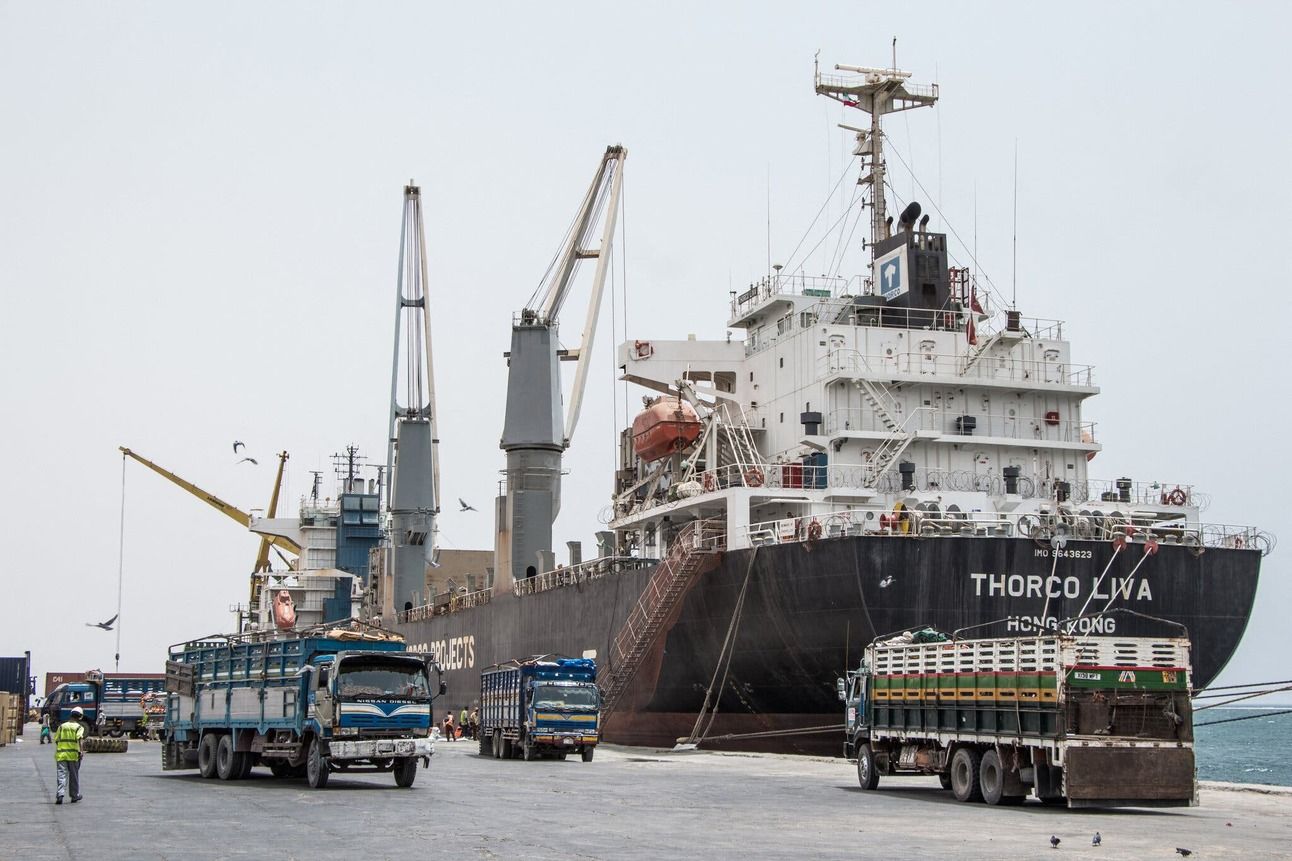
The arrangement is not yet legally binding, but could become enforceable in the coming months, the New York Times reports. The deal threatens to raise tensions in the troubled Horn of Africa, which is already contending with instability wrought by a devastating drought and lengthy civil wars. Somalia, which rejects Somaliland independence, called the agreement “null and void.”
DRC president reelected
Congolese President Felix Tshisekedi won reelection last week in a contest that will grant him continued stewardship over resources critical to international efforts to combat climate change. The DRC’s electoral commission said Tshisekedi won 73% of the vote, far outpacing dozens of other candidates in an election rife with delays and irregularities.
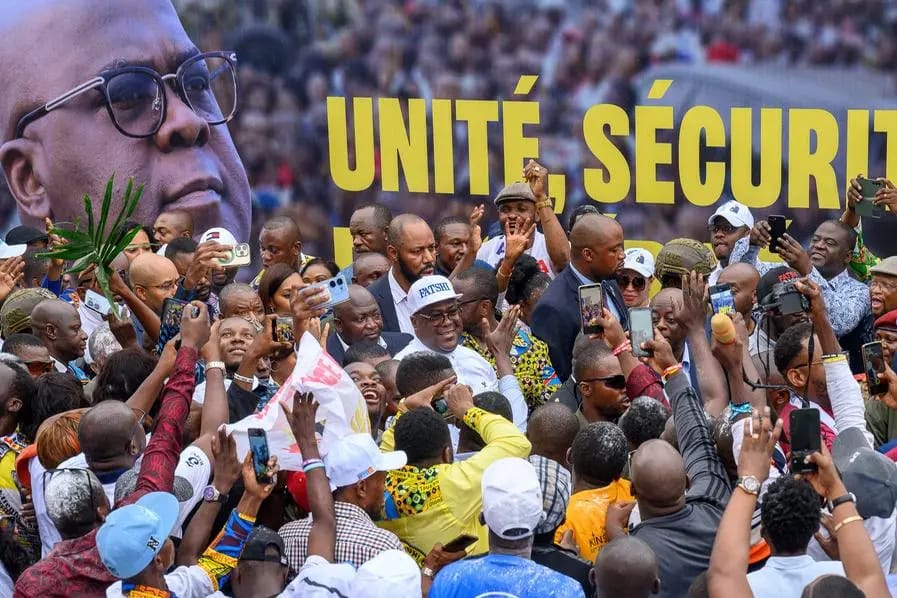
In a joint statement, nine leading opposition candidates decried the results of “sham elections.” Congo’s government has rejected fraud allegations and denied requests for a re-vote, Reuters reports.
The DRC produces several of the minerals that experts say will power the clean energy transition, including 70% of the world’s cobalt. The country is also home to half of Africa’s forests, and the Congo Basin’s peatlands store 29 billion tons of carbon—about three years’ worth of global emissions.
During his first term, Tshisekedi prioritized revenue and job creation for Congo’s impoverished population, at times threatening those resources. In 2022, he announced plans to auction 30 blocks of land for oil and gas exploration, including in Congo Basin peatlands. Only three such auctions have occurred amid pressure from the United States, highlighting the tensions between development and efforts to combat climate change led by carbon-emitting wealthy states.
US removes four Africa countries from continental trade deal
The US has stripped the Central African Republic, Gabon, Niger and Uganda of their trade privileges under the Africa Growth and Opportunity Act (AGOA), ending their duty-free access to the US market.
The move could most seriously harm Uganda’s economy. In the year preceding June 2023, Uganda exported $71 million in goods to the United States, about 12% of which were under AGOA. The removal could now lead to thousands of job losses and a decline in economic growth, Africanews reports.
The decision to remove Uganda from AGOA followed Kampala’s passage of anti-gay legislation, which includes life sentences for homosexuality.
AGOA provides eligible African countries tax-free access to the U.S. market for some 1,800 products, many of which are agricultural. It is set to expire in December 2025, though U.S. officials have signaled an appetite for extending it, AP reports.
Asia
Myanmar junta pardons 10,000 prisoners
Myanmar’s ruling military will release 9,652 prisoners as part of its annual independence day amnesty, the junta announced on Thursday. The junta said it would release 114 foreign prisoners as part of the amnesty, “with the intention of maintaining relations with other countries and on humanitarian grounds.”

Dozens of governments have cut relations with Myanmar since the military took power in February 2021, including many in Southeast Asia.
- Resistance claims further progress against junta forces (FrontierMyanmar)
Just 120 of those freed were political prisoners, a lawyer who represents many such detainees told the AP. The military has arrested more than 25,000 people since the coup and 20,000 remain imprisoned, according to the Assistance Association for Political Prisoners, a nonprofit which tracks detentions in Myanmar.
Still remaining in prison is Aung San Suu Kyi, the civilian leader ousted by the military in 2021. She is currently serving a 27-year sentence.
Thailand scraps visas for Chinese nationals
Thailand will permanently grant visa-free entry to Chinese nationals beginning in March, Thai Prime Minister Srettha Thavisin said this week. The visa exemption marks a continuation of a trial that Thailand announced last September that was due to expire next month.
Thavisin said the decision mirrored a reciprocal Chinese policy for Thai nationals, although China’s foreign ministry spokesman did not confirm the program when asked this week, Voice of America reports.

Thai authorities are hoping to revitalize the country’s tourism industry, which was decimated by the Covid-19 pandemic. Some 40 million people visited Thailand in 2019, about a quarter of whom were Chinese, compared to 28 million people (including 3.5 million Chinese nationals) last year. A government spokesman said the new policy is aimed at more than doubling the number of Chinese visitors, to 8 million, Bangkok Post reports.
Middle East
Egypt plays down impact of Red Sea attacks on shipping
Yemen’s Houthi government continues to escalate attacks on Red Sea shipping lanes, despite threats by the US and others of a military response, the FT reports. Shipping companies have responded by diverting more than $200 billion in trade away from routes passing through the Red Sea, affecting transits via the Suez Canal.
Industry giants including Maersk and Hapag-Lloyd have extended their policies of rerouting Suez transits around the southern tip of Africa for at least another week, resulting in surging ocean cargo freight rates and significant delays. Despite the slump in traffic through the canal, Egypt’s freight association played down the impact saying the Suez Canal “has not been much affected” by the crisis.
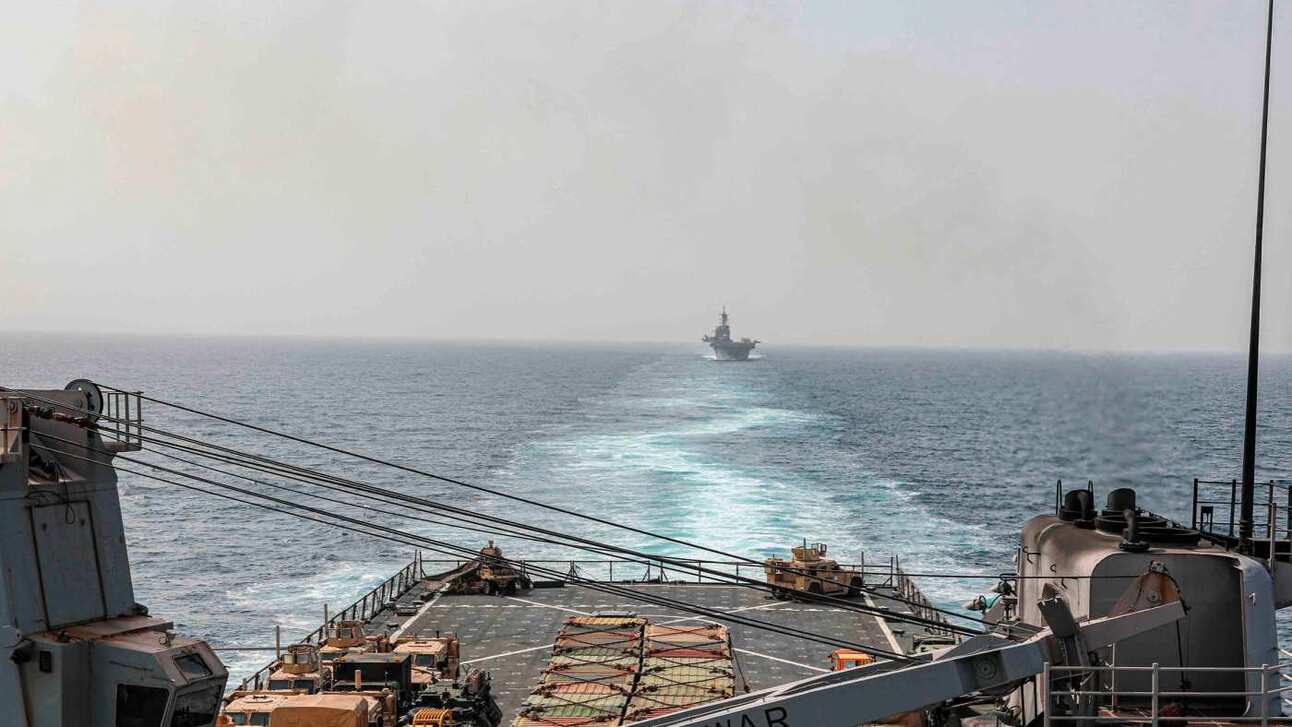
According to the IMF’s PortWatch tool, the 7-day moving average of daily transit calls through the Suez Canal has declined from 75 in the first week of October to 57 the first week of January—a 24% decline—which could translate to a near $2 million per day decline in revenue. LNG shipments through the Canal also halved in December.
Saudi sovereign fund vastly outspent peers in 2023
Saudi Arabia’s Public Investment Fund (PIF) topped the 2023 list of top sovereign wealth fund investors, spending some $31.5 billion last year. The PIF overtook Singapore’s GIC as the leading spender, having spent 25% of the total combined $123.5 billion deployed by sovereign wealth funds in 2023.
The fund was established to support the diversification of Saudi Arabia’s economy away from an overreliance on energy exports, and has a broad mandate to pursue investments as a “catalyst for Vision2030.” Much of its local investment has taken the form of long-term funding commitments to ambitious, expensive, flagship megaprojects such as the linear city NEOM.
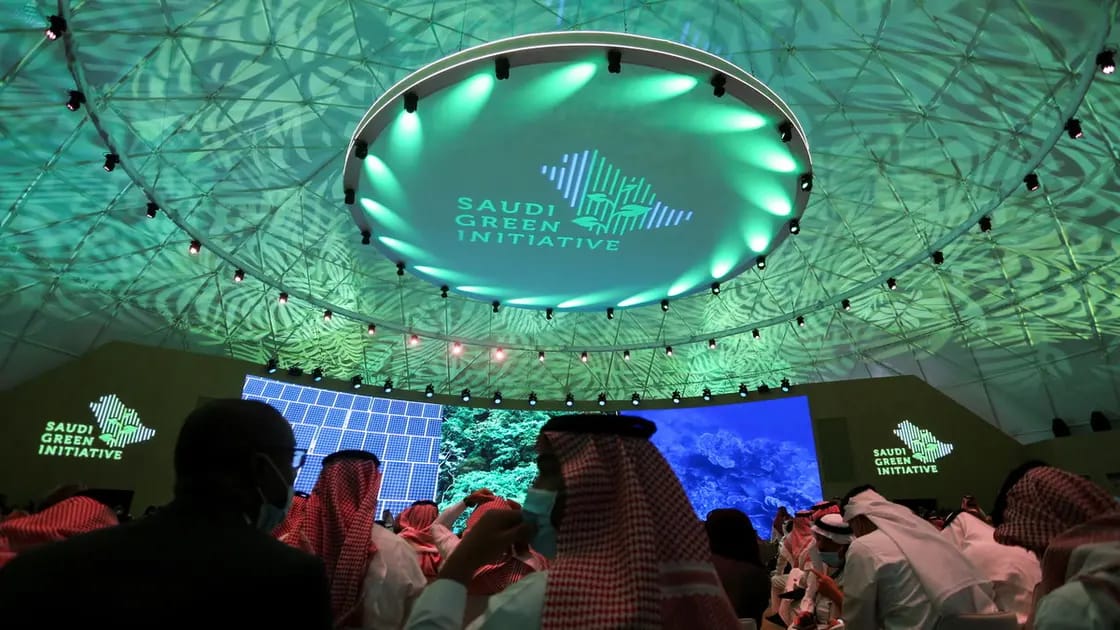
The fund is investing heavily in sports and gaming, but it also made significant investments in clean and renewable energy. Under the Saudi Green Initiative, the kingdom aims to achieve overall net zero in by 2060, with commitments to building out renewable energy capacity by 2030 in the solar and green hydrogen sectors. In support of these goals, the PIF invested in a $3.25 billion solar project and an $8.4 billion green hydrogen plant, and signed MOU’s on developing further green hydrogen projects with French, Italian, and Japanese companies.
Iraq pushes ahead with metro and residential projects
Iraq’s Cabinet this week approved an allocation of $697 million to fund the first stages of the Baghdad metro project, Zawya reports. The metro, to be built by France’s Alstom and South Korea’s Hyundai, will initially include 31 kilometers of rail and 14 stations, with a total expected cost of $2.5 billion. Funds were initially allocated in May 2023, and the project has been in the design phase since 2013, but has since faced severe setbacks due to fiscal constraints and political obstacles.
The previous week also saw Iraq break ground on a $2 billion project to build a new city comprising 30,000 housing units just outside Baghdad, the first of five such housing projects planned to break ground this year. Iraq hopes to address a growing housing crisis by building 250,000 to 300,000 housing units for poor and middle class families by the end of the decade.
Europe
Moldova moves to tax companies in Russia-backed Transnistria region
Moldova is tightening control over its breakaway Transnistria region by forcing local companies to pay taxesfor the first time, Balkan Insight reports. Authorities ended tax exemptions on Jan. 1 that had let Transnistrian firms import EU goods duty-free.
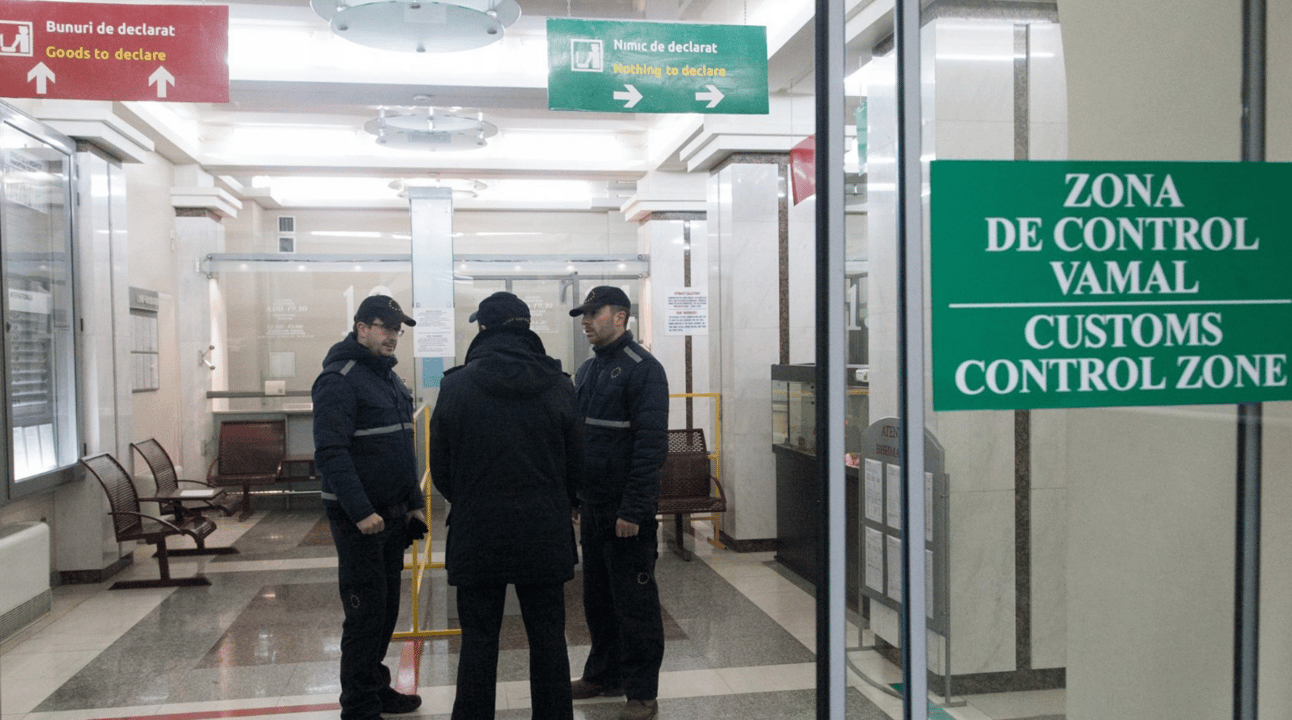
Transnistria severed ties with Moldova in the 1990s with Kremlin backing. The area of 500,000 people has thrived as an illicit trading zone, with billions of untaxed cigarettes flowing through yearly.
Authorities say taxing Transnistrian companies will gradually integrate them into Moldova’s economy. But the region’s leadership criticized the move, saying it limits the benefits of Moldova’s EU free trade deal.
Latin America
Argentine court deals blow to Milei’s labor reforms
In a major setback for newly installed President Javier Milei, Argentina’s Supreme Court has suspended controversial labor reforms that were enacted last month via an emergency decree. The reforms, which loosened restrictions on hiring and firing workers and cut mandatory severance pay, were seen as a key part of Milei’s pro-business economic agenda.

On Friday, the court ruled in favor of unions that had claimed the reforms were unconstitutional, saying the government overstepped its authority. Markets fell on the news, with the Argentine peso dropping over 2% against the dollar as investors’ doubts grew over Milei’s ability to push through his economic reform plans.
Business leaders warned the court decision will hurt investment but unions and the political left hailed it as protecting workers’ rights. The government says it will appeal the decision, which could lead to months of uncertainty over Milei’s pro-market vision.
Ecuador’s president Salvadoran-style security reforms
Ecuadorean President Daniel Noboa is pushing for a referendum on strict security reforms to combat soaring crime and violence, mostly related to drug trafficking, Reuters reports. His proposal echoes controversially severe policies in El Salvador, including tougher prison sentences for serious crimes and military involvement in dismantling criminal groups. El Salvador’s crackdown has been credited with significantly reining in gang violence but has prompted deep concerns about human-rights violations.

The criminal landscape in Ecuador is dominated by the Lobos gang, which emerged victorious from a three-year gang war. They now control significant drug trafficking routes and have expanded into other illegal activities. However, the country’s security forces are plagued by corruption and lack of resources, undermining public trust and effectiveness.
What We’re Reading
IMF sees Mauritania growth almost tripling on gas exports (Bloomberg)
Nigeria converts $8.2b overdrafts to longer-dated bonds (Africa Finance Review)
US seeks drone bases in Ghana, Ivory Coast and Benin to stem Islamist advance (WSJ)
Kenya’s economic growth gathers pace as agriculture rebounds (Bloomberg)
Ethiopia to mull Somaliland recognition (Bloomberg)
Somalia calls Ethiopia-Somaliland agreement act of aggression (BBC)
South Africa’s opposition splinters in battle against ANC (FT)
Bangladesh counts votes in low-turnout election boycotted by opposition (Al Jazeera)
Bangladesh’s 2023 coal-fired power output tripled, easing shortages (Reuters)
Sri Lanka’s China ‘debt trap’ fears grow as new $4.5b Sinopec deal comes amid debt restructuring (Nikkei)
Through wars in Ukraine and Gaza, China bids to lead the Global South (Radio Free Europe)
ASEAN becomes more lucrative than China for JPMorgan and Citi (Nikkei)
Turkey accuses Israel of espionage on its territory (FT)
Turkey’s 49% minimum wage hike balances between unions and markets (Bloomberg)
Iran withholds oil deliveries as it seeks higher prices from China (Oilprice.com)
Iraq prepares to close down US-led coalition’s mission (Reuters)
Airstrike in Iraq kills Iran-backed militia leader as regional tensions escalate (AP)
Iran moves to seal borders with Afghanistan and Pakistan after deadly blasts (Radio Free Europe)
Iran, Saudi Arabia, UAE, Egypt and Ethiopia join BRICS, doubling membership (Jerusalem Post)
Oman’s non-oil exports to Saudi Arabia surge 25.5% (Zawya)
Ukraine’s gas storage helps Europe avert further energy crises (FT)
Putin’s free Russian classes are taking off in Africa (Semafor)
Russia bets it can ‘outlast the attention span of the West’ to defeat Ukraine (Radio Free Europe)
Venezuela says troops will stay deployed until British military vessel leaves waters off Guyana (AP)
Venezuela’s 2023 oil exports rose, aided by US sanctions easing (Reuters)
Free trade agreement between Nicaragua and China begins (Reuters)
Ecuador smashes shrimp export record (IntraFish)
Ecuador reaches deal with indigenous group to end oil field blockade (Reuters)
Bolivia’s Evo Morales denied new presidential bid by top court (Bloomberg)
Dominican Republic’s president bucks region wide anti-incumbent trend (Americas Quarterly)
Uruguay blazes trail with switch to renewables (The Guardian)
Controversial Brazil law curbing Indigenous rights comes into force (The Guardian)
Argentina and IMF ‘close to agreement’ on delayed program review (Reuters)
Milei says Argentina won’t join Brics bloc in policy reversal (The Guardian)






